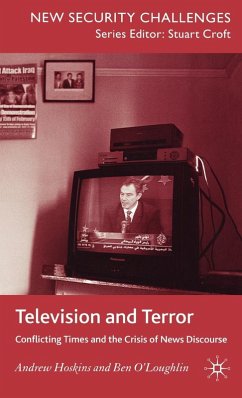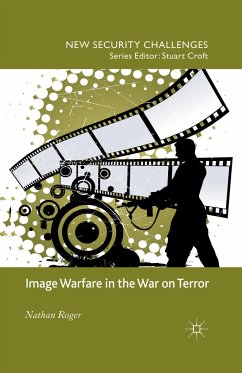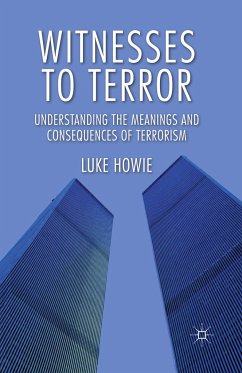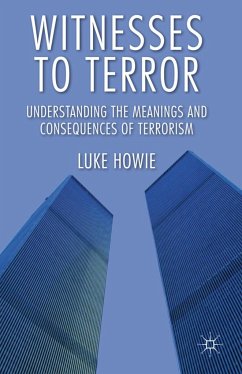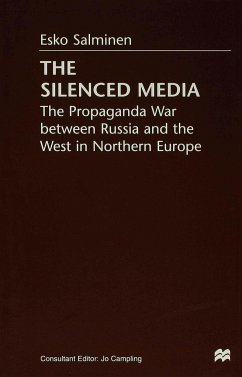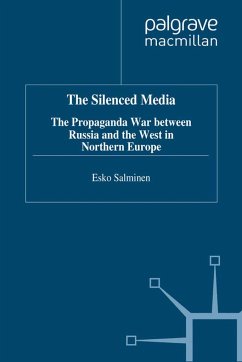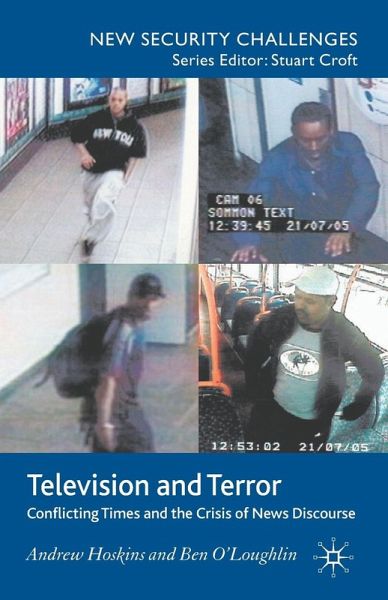
Television and Terror
Conflicting Times and the Crisis of News Discourse
Versandkostenfrei!
Versandfertig in 6-10 Tagen
38,99 €
inkl. MwSt.
Weitere Ausgaben:

PAYBACK Punkte
19 °P sammeln!
The advent of the twenty-first century was marked by a succession of conflicts and catastrophes that demanded unrestrained journalism. Yet, the principle mass news medium of television has become torn between strategies of containment and the amplification of security threats. Hoskins and O'Loughlin demonstrate that television, tarnished by its economy of liveness and its default impositions of immediacy, brevity and simultaneity, fails to deliver a critical and consistent exposition adequate to our conflicting times.





